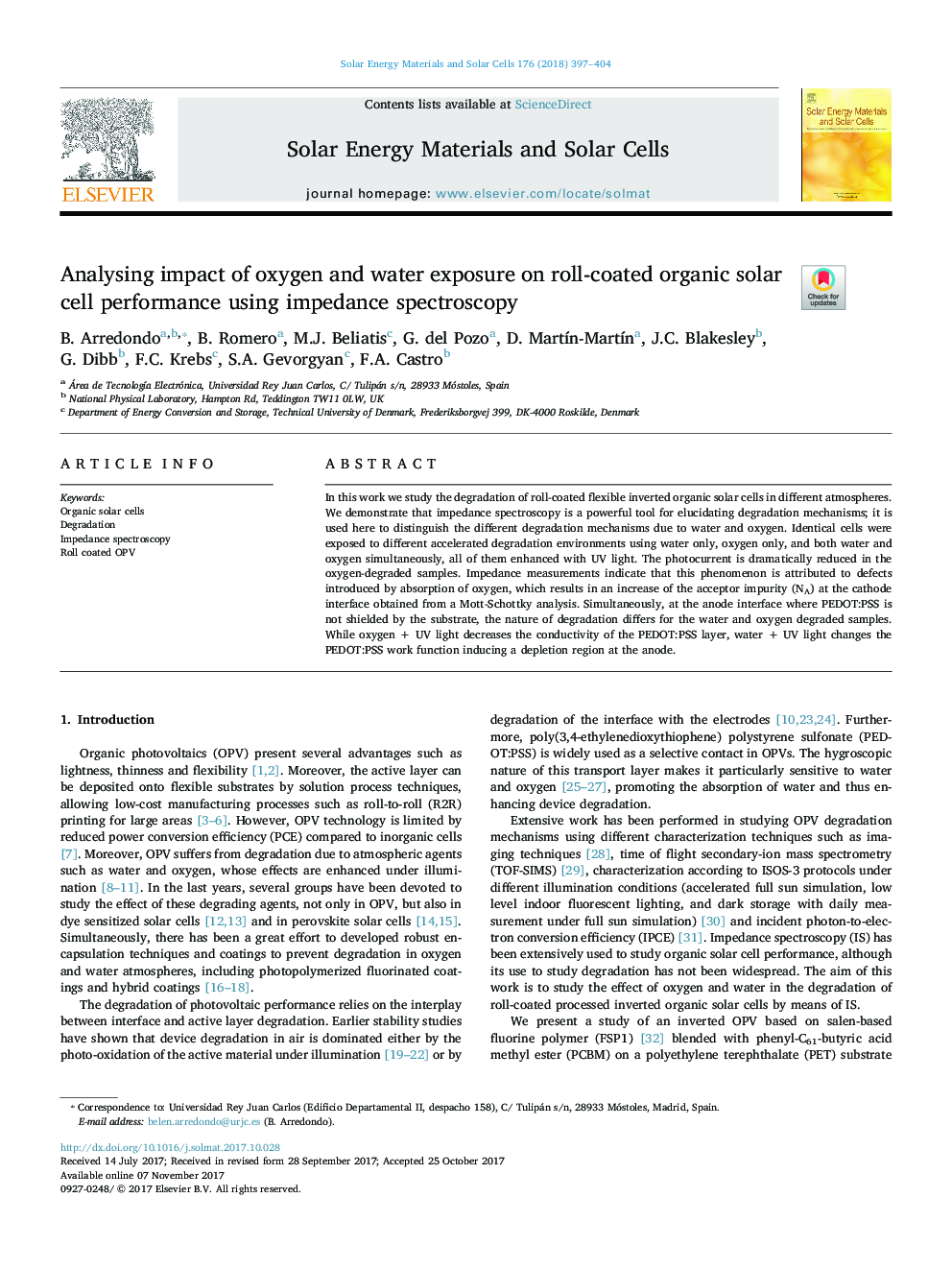| Article ID | Journal | Published Year | Pages | File Type |
|---|---|---|---|---|
| 6534482 | Solar Energy Materials and Solar Cells | 2018 | 8 Pages |
Abstract
In this work we study the degradation of roll-coated flexible inverted organic solar cells in different atmospheres. We demonstrate that impedance spectroscopy is a powerful tool for elucidating degradation mechanisms; it is used here to distinguish the different degradation mechanisms due to water and oxygen. Identical cells were exposed to different accelerated degradation environments using water only, oxygen only, and both water and oxygen simultaneously, all of them enhanced with UV light. The photocurrent is dramatically reduced in the oxygen-degraded samples. Impedance measurements indicate that this phenomenon is attributed to defects introduced by absorption of oxygen, which results in an increase of the acceptor impurity (NA) at the cathode interface obtained from a Mott-Schottky analysis. Simultaneously, at the anode interface where PEDOT:PSS is not shielded by the substrate, the nature of degradation differs for the water and oxygen degraded samples. While oxygen + UV light decreases the conductivity of the PEDOT:PSS layer, water + UV light changes the PEDOT:PSS work function inducing a depletion region at the anode.
Related Topics
Physical Sciences and Engineering
Chemical Engineering
Catalysis
Authors
B. Arredondo, B. Romero, M.J. Beliatis, G. del Pozo, D. MartÃn-MartÃn, J.C. Blakesley, G. Dibb, F.C. Krebs, S.A. Gevorgyan, F.A. Castro,
